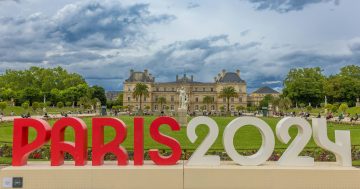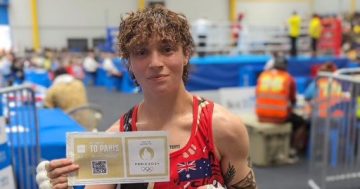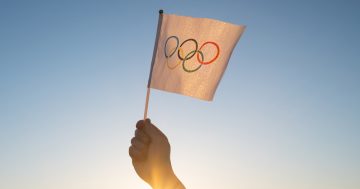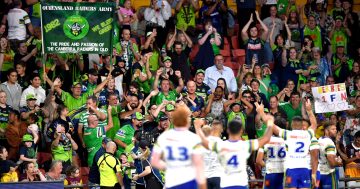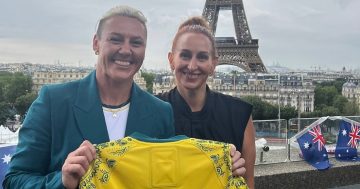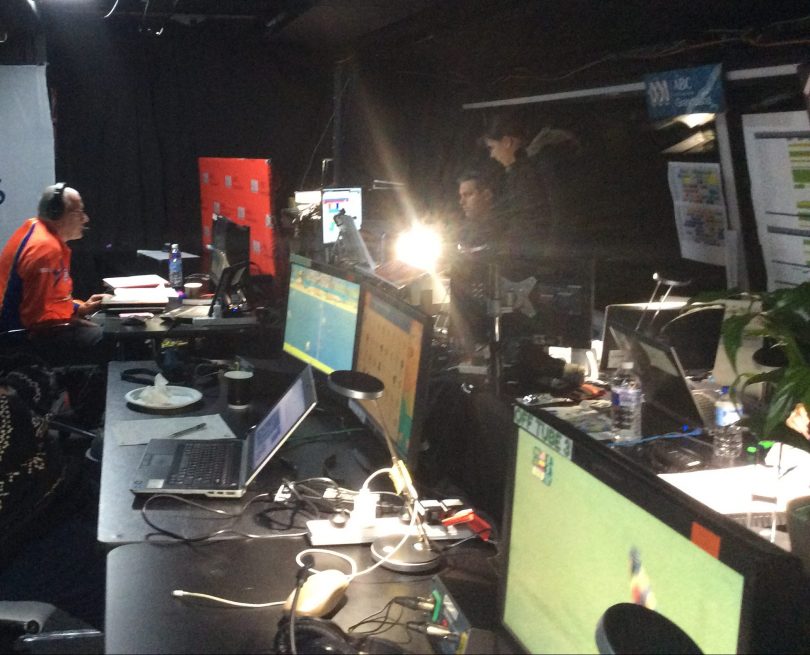
A view of the ABC commentary studio for the Rio Olympics set up at Redfern. Photo: Tim Gavel.
With the Tokyo Olympics in a comparable time zone to Australia, and with so many in COVID-19 lockdown, more people appear to be engrossed in the Olympic Games than ever.
The larger television audience is aided by Channel 7’s app function, allowing the viewer to have considerable choice in event selection.
With plenty of eyeballs on Seven’s coverage, there has been an almost simultaneous coverage on social media, analysing the commentary on offer.
Having commentated at seven Olympic Games for the ABC, beginning with Barcelona in 1992, this is my first Games since that year of not providing commentary. So as a viewer, I have found the entire experience remarkable. And given the hurdles presented by COVID restrictions, the coverage has been superb.
The vast majority of commentary has been undertaken through television, with commentators positioned in Melbourne and Sydney, supported by reporters on the ground in Tokyo.
Having undertaken commentary of the Rio Olympics via television in Sydney, I can speak from experience about the difficulty in generating a feel for the competition from a remote commentary point.
Channel 7 has benefitted enormously through their choice of expert commentators, with Ian Thorpe and Leisel Jones leading the way with their swimming analysis.
Thorpe’s ability to position viewers into a race has been a revelation, an even more impressive feat given he was providing his commentary from Melbourne as he watched the vision fed from the Olympic venue in Tokyo.
Former long jumper Dave Culbert has been one of the leading track and field commentators for many years, but his versatility during these Games has come to the fore.
His contribution with Richard Fox in the slalom was one of the highlights of the Games coverage. He allowed Fox to effectively take the lead, a selfless act and not as easy as it sounds in the heat of commentary.
Similarly, Matt Hill’s commentary of the rowing has to be applauded given the reliance on footage from the host broadcaster. Hill’s ability to react with ease to the unexpected, such as a crew suddenly coming into view from the bottom of the screen, was impressive.
Alister Nicholson, one of my former colleagues at the ABC, has always been a great commentator. His excellent, precise hockey commentary has exposed his ability to wider audiences. His expert commentator at the hockey, former Hockeyroo Georgie Parker, has been equally impressive.
Phil Liggett is rightfully regarded as the voice of cycling. His commentary of the road cycling in Tokyo brought his talents to the homes of an Australian audience via his commentary position in a studio west of London near Heathrow Airport, supported by his expert commentators back in Australia. Scott McGrory and Anna Meares provided great insight as expert commentators.
When considering experts, Russell Mark was excellent in his commentary of the shooting. This is not an easy sport to call via a screen. It is quick and very focused.
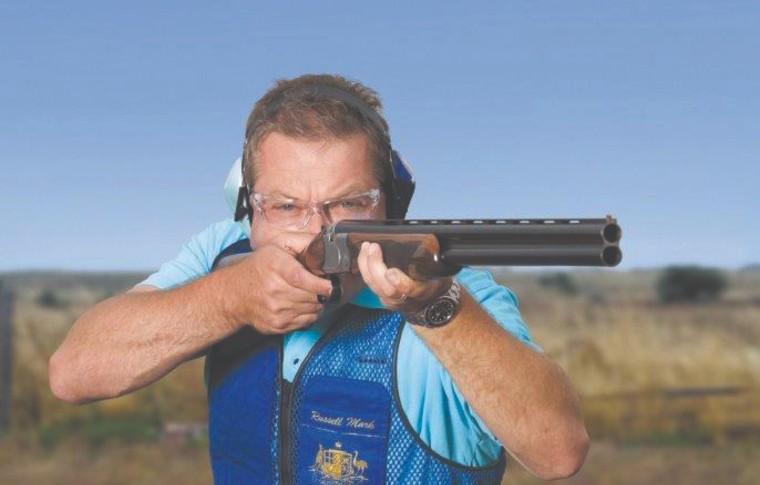
Russell Mark has considerable experience with Olympic shooting, having competed in six Olympics and gaining a gold medal at the 1996 Atlanta Games. Photo: Goshooting.com.
Tamsyn Lewis-Manou was the perfect foil for Bruce McAveny, who is providing commentary in his 11th Olympics. His call of the 10,000 metres was one of his best. Once again, this is not an easy race to call via a television screen, particularly when runners are not bunched together.
Brenton Speed continues to impress as a football commentator, while it was great to see Greg Clark back calling the rugby.
Special mention needs to be made of Matt Carmichael, who has significantly added to the coverage with his ability to relate to athletes and analyse a range of issues.
Bringing these Olympics to the lounge rooms of Australians during a pandemic has been a logistical triumph. The commentary teams have been the icing on the cake, covering the performances of so many wonderful, talented athletes who are performing on the greatest sports stage in the world.













